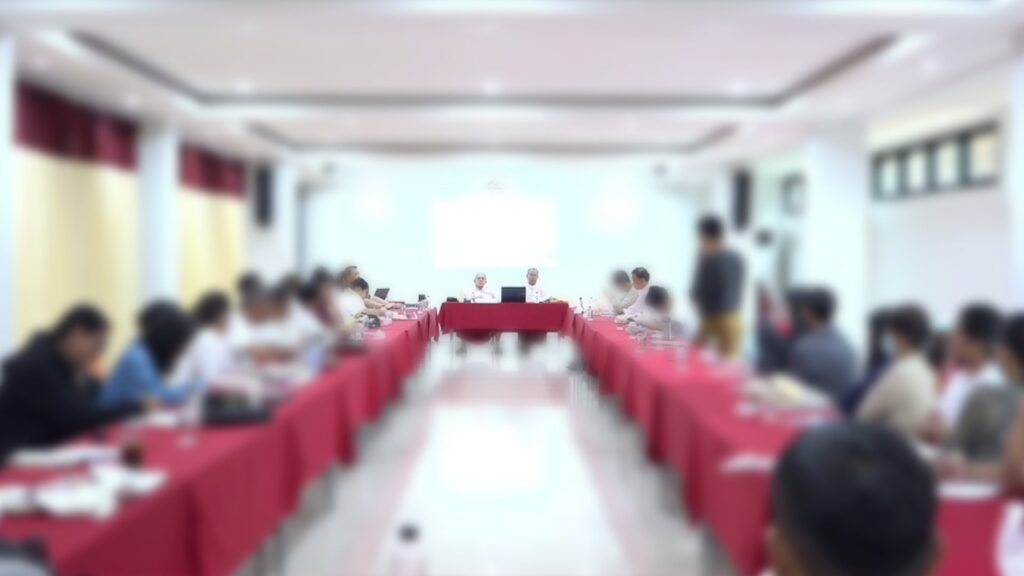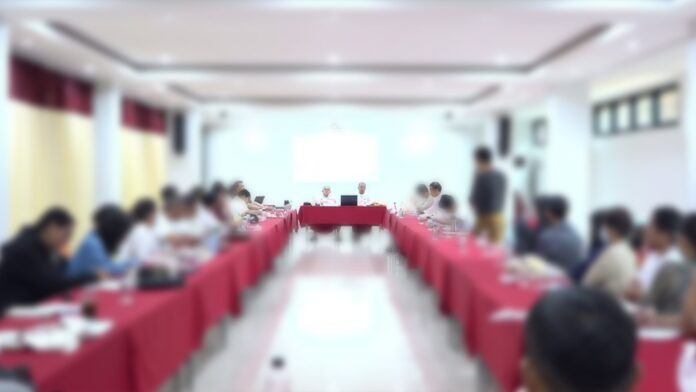At its third conference, the Mon State Federal Council (MSFC) announced plans to develop and implement a strategic campaign aimed at mobilizing public resistance to the upcoming 2025 election organized by the military regime in Mon State.
Held on June 14th and 15th, the conference also focused on outlining future political and military collaborations during the ongoing revolutionary period.
At a press briefing following the conference, Dr. Thiri Mon Chan, an executive member of the MSFC, announced plans to launch multiple campaigns aimed at discouraging public participation in the upcoming election. The council views the election as a means to prolong military dictatorship and undermine the democratic movement. Additionally, Dr. Thiri Mon Chan revealed that a diplomatic campaign will be conducted to urge foreign diplomats to refuse recognition of the military-led election.

He said, “We must also resist through military means.” Back in the 2008 referendum, there were opposition efforts, but they weren’t successful. During the 2010 election, political parties protested too, but it wasn’t enough—it didn’t work. So, if the 2025 election goes ahead, we’ll need to take action militarily as well.”
The MSFC stated that further discussions are still needed among its members and organizations regarding the election boycott. As a result, it is not yet able to disclose the specific details that will be included in the upcoming strategic plan.
Between the second and third conferences, the MSFC had already established a committee to oppose the 2025 election. The council plans to continue implementing the activities outlined by this committee.
The MSFC also urged resistance forces and the Mon public to actively oppose the upcoming election, pointing out that political parties in Mon State are already setting up offices and recruiting members to participate. Meanwhile, the military council’s Mon State administration is issuing citizenship verification cards to migrant workers so they can vote, further emphasizing the need for collective resistance.
During the two-day conference, MSFC also resolved to draft a Mon charter for the revolution period, support the creation of district-level public safety and service committees for vulnerable groups including women and children, and work with ethnic revolutionary organizations and democratic forces to implement a bottom-up federalism model.
New leadership appointments were made as well, with Nai Kao Rot, Mi Kon Chan Non, and Dr. Thiri Mon Chan elected as members of the executive team and chairs of three committees.
More than 200 participants attended the third MSFC conference, including key leaders from the National Unity Consultative Council (NUCC), the National Unity Government (NUG), the Karenni State Consultative Council, and various Spring Revolution forces, who also delivered speeches during the event.

